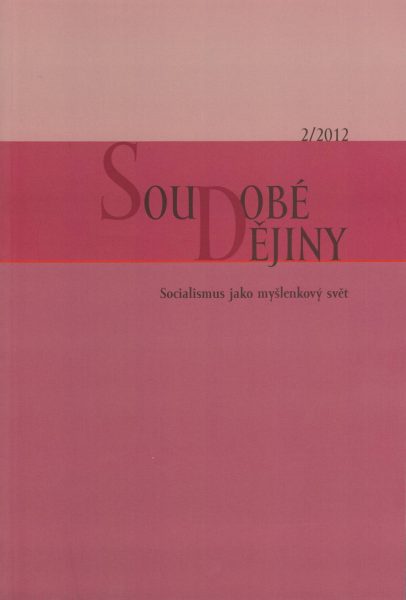Očištěná společnost, Očista jako konstitutivní princip utváření poválečné české společnosti na příkladu českého pohraničí
Social Cleansing as a Constitutive Principle in the Formation of Czech Society after the Second World War: The Example of the Czech Borderlands
Author(s): Matěj SpurnýSubject(s): History
Published by: AV ČR - Akademie věd České republiky - Ústav pro soudobé dějiny
Summary/Abstract: In this essay, the author explores the mental and social prerequisites of the Communist dictatorship in Czechoslovakia, using as his example the post-war cleansing of the borderlands of Bohemia and Moravia. He argues that in the Czech milieu the cleansing was not a product of Communist dictatorship, but, on the contrary, the dictatorship was, at least in part, a result of a demand of a society whose desire for cleansing was already sated. He considers cleansing in general and the conditions that brought it to life, and then discusses its particular forms, aims, methods, strategies of legitimation, and changes in the Bohemian and Moravian borderlands after the Second World War. He argues that cleansing as a political means was not ordered by the Communist Party against the will of the other political actors, but that, on the contrary, it was a bond that linked the actors on the post-war political scene. The author devotes the most space to an analysis of the contemporaneous discourse on cleansing, providing examples of how it effected various ethnic and social groups, from Germans, Hungarians, people of indeterminate ethnic identity and other national/ethnic minorities or returnees, to alleged collaborators, Germanophiles, and ‘asocial elements’. The aim of the proposed measures, most of which were carried out, was to create a homogeneous society (primarily in ethnic terms) by getting rid of the alleged ‘enemy within’ and securing the state frontiers against the enemy outside. A principle of this was that the cleansing aims, even before the Communist takeover of February 1948, required changes to the law or even its outright infringement. The rhetoric and legitimation of cleansing after this milestone, according to the author, did not radically change, and the cleansing methods applied in the fi rst half of the 1950s against other social categories were in some ways a return to early post-war methods used against the German population and people who had allegedly offended against Czech national honour.
Journal: Soudobé Dějiny
- Issue Year: XIX/2012
- Issue No: 02
- Page Range: 209-226
- Page Count: 18
- Language: Czech

